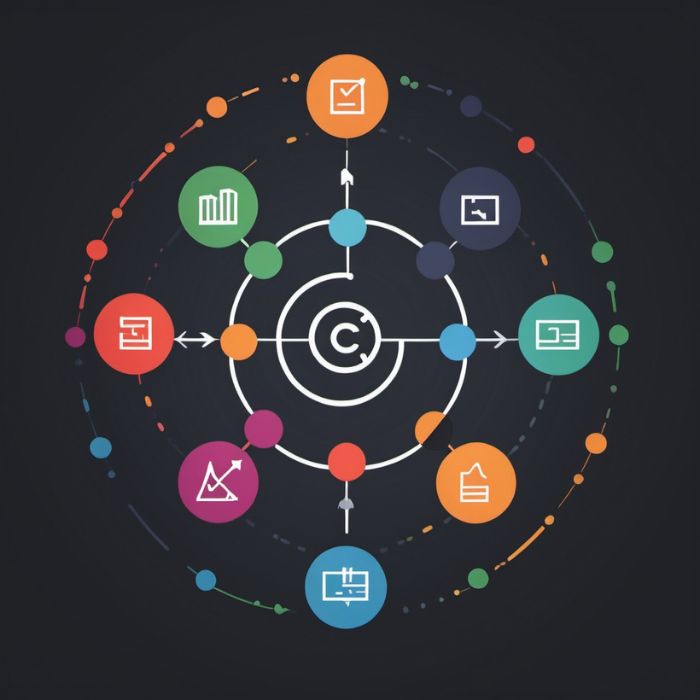7 AI-Powered Strategies to Transform Your Small Business in 2026
Small business owners face an uphill battle every day. Limited budgets, fierce competition, and the constant pressure to do more with less can feel overwhelming. But what if I told you that the same technology powering Silicon Valley giants is now accessible to businesses of every size? Artificial intelligence isn’t just for tech companies anymore—it’s becoming the great equalizer that allows small businesses to compete with industry leaders.
The reality is stark: businesses that embrace AI-driven decision-making are pulling ahead, while those that don’t risk being left behind. The good news? You don’t need a computer science degree or a massive budget to start leveraging AI. Here are seven practical ways to integrate artificial intelligence into your small business operations and gain the competitive edge you’ve been looking for.
Table of Contents
1. Revolutionize Your Content Creation Process
Content creation can consume enormous amounts of time and energy—resources most small business owners simply don’t have in abundance. AI-powered writing tools can serve as your creative partner, generating initial drafts, suggesting fresh topics, and helping overcome writer’s block.
However, here’s the crucial caveat from my two decades in content: AI creates the foundation, not the finished product. These tools excel at generating ideas and basic structure, but your brand voice, industry expertise, and fact-checking abilities remain irreplaceable. Think of AI as your research assistant and first-draft writer, then add your unique perspective and verify every claim.
The time savings are substantial. What used to take hours of staring at a blank page can now become a collaborative process where you refine and personalize AI-generated content to match your brand’s tone and message.
2. Master Social Media Management with Data-Driven Insights
Social media success isn’t about posting more—it’s about posting smarter. AI analytics tools can decode the mystery of audience behavior, revealing when your followers are most active, which content types generate the highest engagement, and what topics resonate with your specific audience.
These insights go far beyond basic metrics. AI can identify patterns in successful posts, suggest optimal posting times, and even predict which content is likely to perform well before you publish it. This data-driven approach transforms social media from a guessing game into a strategic advantage.
The result? Higher engagement rates, better reach, and more meaningful connections with your audience—all while spending less time on trial-and-error posting.
3. Personalize Email Marketing at Scale
Generic, one-size-fits-all emails are quickly becoming relics of the past. Today’s consumers expect personalized experiences, and AI makes this level of customization achievable for businesses of any size.
AI-powered email marketing platforms can segment your audience based on behavior, preferences, and purchase history, then automatically customize content for each segment. This goes beyond simply inserting someone’s name in the subject line—we’re talking about dynamic content that adapts product recommendations, messaging, and even send times based on individual user data.
The impact on your bottom line can be significant. Personalized emails consistently generate higher open rates, click-through rates, and conversions compared to generic broadcasts.
4. Uncover Competitive Intelligence Effortlessly
Understanding your competition used to require hours of manual research and guesswork. AI-powered market intelligence tools can now gather and analyze competitive data in minutes, providing insights that would have taken a dedicated research team to uncover.
These tools can monitor competitor pricing, track their marketing campaigns, analyze their social media performance, and even identify gaps in their strategy that you can exploit. This intelligence becomes the foundation for more informed marketing decisions and strategic positioning.
Armed with this data, you can make strategic decisions based on real market conditions rather than assumptions, giving you a significant advantage in competitive markets.
5. Dominate Local Search with Automated SEO
For businesses that depend on local customers, visibility in local search results can make or break success. AI-powered local SEO tools can automate the tedious but crucial tasks of managing your Google My Business listing, monitoring online reviews, and optimizing your local search presence.
These tools ensure your business information remains consistent across all platforms, automatically update your listings when you change hours or services, and can even suggest optimizations based on local search trends and competitor analysis.
The payoff is substantial: improved local search rankings mean more customers find you when they’re ready to buy, directly impacting your revenue.
6. Provide 24/7 Customer Support with Intelligent Chatbots
Your customers don’t keep business hours, and neither should your customer service. Modern AI chatbots have evolved far beyond the frustrating, scripted responses of the past. Today’s intelligent chatbots can handle complex inquiries, provide personalized recommendations, and seamlessly escalate to human support when needed.
But here’s the hidden value: these chatbots are also powerful data collection tools. Every interaction provides insights into customer pain points, frequently asked questions, and areas where your business processes might need improvement.
This dual benefit—improved customer experience and valuable business intelligence—makes AI chatbots one of the highest-impact investments a small business can make.
7. Convert More Visitors into Customers
Your website traffic represents potential revenue, but converting visitors into customers requires understanding their behavior and removing barriers to purchase. AI analytics tools can track user journeys, identify where potential customers drop off, and suggest specific improvements to increase conversion rates.
These tools analyze everything from page load times and navigation patterns to the effectiveness of your calls-to-action. They can even run automated A/B tests to continuously optimize your website’s performance.
The compound effect of small improvements in conversion rate can dramatically impact your bottom line. A 2% increase in conversion rate might seem modest, but it can translate to thousands of additional dollars in revenue annually.
The Competitive Reality
The businesses that thrive in the coming years won’t necessarily be the ones with the biggest budgets or the most employees. They’ll be the ones that leverage technology to work smarter, make better decisions, and provide superior customer experiences.
AI adoption isn’t just about keeping up with trends—it’s about survival and growth in an increasingly competitive marketplace. The tools exist, they’re more affordable than ever, and your competitors are already exploring them.
The question isn’t whether AI will transform small business operations—it’s whether you’ll be leading that transformation or scrambling to catch up. The businesses that start implementing these strategies today will have a significant advantage over those that wait.
Your customers expect more personalized experiences, faster responses, and better service. AI makes delivering on these expectations not just possible, but practical and affordable. The future of small business isn’t just about working harder—it’s about working smarter with the right tools.
The time to start is now.





